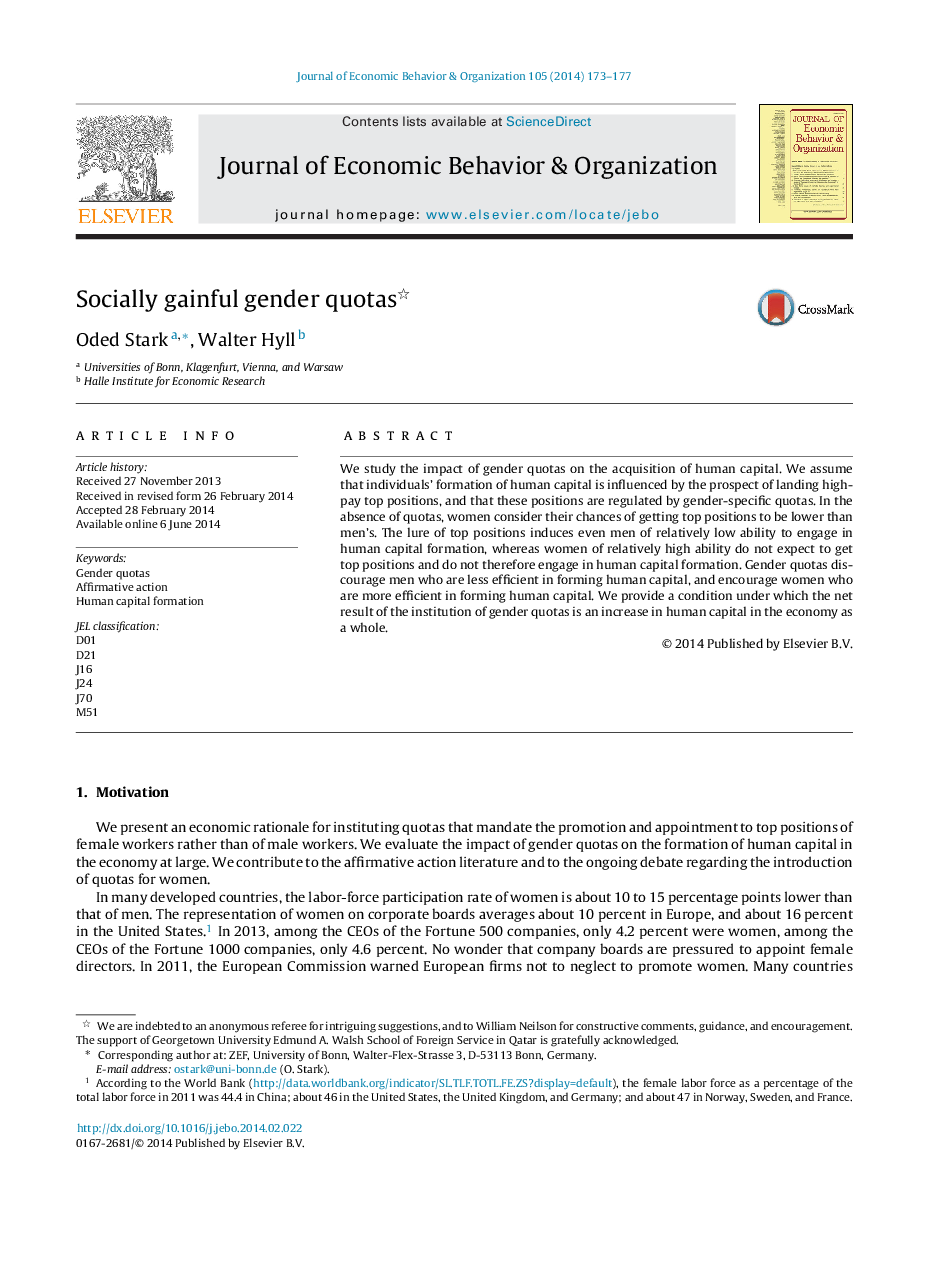| Article ID | Journal | Published Year | Pages | File Type |
|---|---|---|---|---|
| 883506 | Journal of Economic Behavior & Organization | 2014 | 5 Pages |
•We study the impact of gender quotas on the acquisition of human capital.•Without quotas, women consider their chances of getting top positions to be lower than men's.•Good chances induce even men of relatively low ability to acquire human capital.•Women of relatively high ability do not expect to get top positions and do not acquire human capital.•Gender quotas discourage (encourage) men (women) who are less (more) efficient in forming human capital.•The net result of instituting gender quotas is an economy-wide increase in human capital.
We study the impact of gender quotas on the acquisition of human capital. We assume that individuals’ formation of human capital is influenced by the prospect of landing high-pay top positions, and that these positions are regulated by gender-specific quotas. In the absence of quotas, women consider their chances of getting top positions to be lower than men's. The lure of top positions induces even men of relatively low ability to engage in human capital formation, whereas women of relatively high ability do not expect to get top positions and do not therefore engage in human capital formation. Gender quotas discourage men who are less efficient in forming human capital, and encourage women who are more efficient in forming human capital. We provide a condition under which the net result of the institution of gender quotas is an increase in human capital in the economy as a whole.
